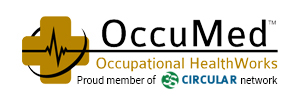A COVID-19 vaccine that will help put an end to the current pandemic has been on everyone’s minds since the public health crisis began. Recent developments have made what once seemed so distant now a near reality. With announcements of success in vaccine candidates from Pfizer and Moderna, people are hopeful that the light at the end of the tunnel is closer than ever. But, given the constant updates and new information, combined with how quickly it has all come about, people understandably have a lot of questions and concerns. Thankfully, the CDC has created a helpful list of eight things everyone should know about the upcoming vaccine.
Vaccine safety is a top priority.
The creation of this vaccine is, much like the pandemic itself, unprecedented. Scientists have been working since the discovery of the virus to figure out how to fight it. But, because it happened so quickly, some people will be hesitant to receive it. However, there are countless protocols in place to make sure this (and any) vaccine is as safe as possible.
Vaccine clinical trials have been underway for months, following strict guidelines from the United States Food and Drug Administration that can be found here. If the FDA determines that a vaccine meets these standards, the candidate must pass further review by the Advisory Committee on Immunization Practices before the CDC makes any recommendations. Even after a vaccine is approved for public use, the FDA still monitors it, and will respond if unexpected adverse events arise. Software programs are even in development to communicate directly with vaccine recipients and allow them to report issues.
There are many vaccines currently being developed and tested, some of which may be ready before others.
From the onset of the pandemic, the race was on to find a vaccine, and many companies joined in. Because of a variety of circumstances, some companies are further along than others, and the CDC is taking all this into consideration. The CDC is working with public health departments and officials to determine the best approach to distributing the vaccines as they become available, and these approaches are flexible, so they will be able to make changes to their plans as more candidates are developed.
At first, the FDA may issue an Emergency Use Authorization for the vaccine.
An Emergency Use Authorization, or EUA, allows medicines and other countermeasures to be used during a public health emergency. Usually, this means that the treatment, in this case the vaccine, has not been officially approved for use, but it does meet the standards which would ultimately lead to approval. Just because a manufacturer submits an EUA does not mean it will be approved for use, though. The FDA must review all reports and scientific evidence, and deem that there is no alternative to treatment.
Because of the current situation, it is very likely that an EUA will be approved. Read more about them here.
A limited supply of vaccines may be available before the end of 2020, but supply will continue to increase.
The federal government invested in certain manufacturers to help facilitate the creation and distribution of a vaccine. The plan is to have several hundred thousand vaccine providers available to the public as time dictates, including doctors’ offices, pharmacies, and hospitals. As more quantities of the vaccine are released, the availability will also increase.
If vaccine availability is limited initially, certain groups will receive recommendations first.
Once the vaccine is widely available, the goal is for everyone to have easy access to it. However, at the beginning, if supplies are limited, they will be reserved for certain groups and populations. Experts are working hard to plan initial distribution in fair and ethical ways, taking into account risk factors while remaining transparent. As of right now, it seems that the following four groups would be most likely to be the first to receive the vaccine:
-Healthcare workers
-Essential workers
-People at high risk of severe complications from COVID-19 due to preexisting conditions
-People ages 65 and older
For more information on how the CDC is planning initial vaccine distribution, click here.
Initially, the vaccine may not be recommended for children.
Remember that clinical trials are still underway. In the initial trials, only nonpregnant adults received the vaccine, so information on vaccine effectiveness and safety is available for these ages. But, test groups will continue to grow and vary as more information is collected, so the CDC may change group recommendations as time goes on.
Cost will be no issue to getting vaccinated.
Measures are in place to allow people to receive the vaccine without worrying about how much it will cost. Any vaccine purchased with United States taxpayer dollars will be given at no cost. Vaccine providers, such as a doctor’s office, can charge an administration fee, but the recipient’s insurance company will reimburse the providers their fee. Uninsured recipients need not worry either, for their fees are reimbursed by the Health Resources and Services Administration’s Provider Relief Fund.
Vaccine planning is constantly being updated.
As everyone has seen over the last few months, new information about the virus comes in at every moment. The same goes for information about the vaccine. The CDC is monitoring everything, though, and they will continue to update the public with all the necessary information and developments as they arise.
A vaccine may be nearing its release, but patience is still key. Everyone must still adhere to public health measures for the time being until the eventual vaccine distribution takes effect, because all of these measures together will be what takes the world out of this situation. But, these exciting new developments should certainly give hope that the end of the public health crisis, and the COVID-19 pandemic, with everyone’s help, will hopefully soon be a memory.
If you have concerns about your workforce and coronavirus, please contact us today to learn about steps you can take to protect yourself, your family, and your employees. We offer the following COVID-19 safety service options:
COVID-19 Consulting Bundle: Written directive/policy on requirements which can be either a corporate policy or a site-specific policy.
COVID-19 Training (Infection Control Webinar): We offer Open Enrollment Classes and Private Company Sponsored Classes made available at your convenience.
COVID-19 Testing: We now offer COVID-19 Testing Services for Colleges, Universities, Private Companies, And Public Agencies
Source
https://www.cdc.gov/coronavirus/2019-ncov/vaccines/8-things.html


